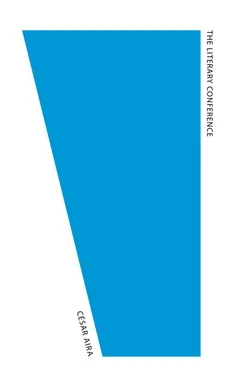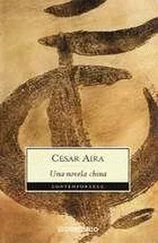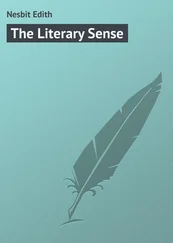“Where is she?”
“At her house. She sleeps late and very heavily. We must go wake her up and tell her what’s going on!”
What good would that do her? None, of course. And us, even less. But the idea attracted me for two reasons: first, I could see Amelina again, and under savage and peremptory circumstances; second, it was the perfect excuse to abandon my impractical plan of reaching the cloning machine. The very instant I made the decision to go, I became possessed by an almost infantile euphoria, because Nelly’s words implied that Amelina still lived alone, she had not gotten married, and she, Nelly, continued to think of her in relation to me, and if she had decided to mention her only under this extremity, it was because our love story was real, it carried across all the translations, it would keep its appointment. .
“Let’s go,” I said. “But you’ll have to guide me.”
She pointed to the first exit, and I veered off the highway, making the tires screech. We turned our backs on the mountain and the worms, as if to say, “Who cares!” and we returned to the city along a road I didn’t know. She told me that Amelina was still living in one of the student apartments in the Nancy Building, the same one where I had visited her years before. It wasn’t far away, but nothing was in such a small city.
The traffic got heavier, though it was still moving because nobody was paying any attention to the traffic lights. I wondered where they were all going. From the terraces, people kept looking toward the mountains with the same expectations, the same alarm, the same dismay. They were not taking any measures, but what could they do? The cars were driving like crazy, all in the same direction. .
“Where are they going?” Nelly asked.
Suddenly, I knew: to the airport. It seemed strange that I hadn’t thought of that sooner; apparently others had. The only way out was by air. But, even assuming there were still some private airplanes available and that military planes were on their way, many could not be saved, let alone all. The commercial flight arrived at ten and departed at eleven, if they hadn’t cancelled it. And if it arrived full of passengers, the passengers themselves would want to remain on the flight back to Caracas.
A Mercedes Benz, its horn blasting like a siren, passed us; I glimpsed Carlos Fuentes and his wife in the back seat, their profiles set in serious expressions. They, too, were on their way to the airport. How naive! Or, perhaps, they had been offered seats on an official plane? The city was the provincial capital, and surely the governor would have one. . but I found it hard to believe that in this predicament of “save yourself if you can,” literary hierarchies would be respected. No way! Surely they were going to try to somehow wangle a seat, like so many others. . I remembered that I had a reservation for the eleven o’clock flight, I was even carrying the ticket in my pocket. . If I had been able to catch up with that powerful Mercedes I would have offered them my seat. . I’ve always liked Carlos Fuentes; not in vain had I chosen him for my experiment. I felt like a scoundrel. Everything that was happening was my fault, and now, instead of putting everything on the line to rid the world of this threat (it was the least I could do), I was allowing myself to be carried away by a private, sentimental whim; I was ashamed of my lack of responsibility.
To appease my conscience, I said out loud, “It will take us only a few minutes. Then all three of us will go to the mountain.”
She indicated where to turn and continued directing me along a sinuous route. She leaned forward and pointed her finger in the direction I should go. I couldn’t avoid looking at her, and I seemed to be seeing her, again, for the first time. Again I discovered her beauty, her youth. . a bit excessive for me, but that’s what it was all about. To be young again, “good and beautiful,” as she had said. She was mysterious, that little Nelly, her serenity and silence shielded some kind of secret that enthralled me. .
Here there is a blank in the story. I don’t know what happened in the following few minutes. Perhaps we never reached Amelina’s place, perhaps we got there and didn’t find her, or couldn’t rouse her. What I do know is that I suddenly found myself about a hundred feet below street level on the banks of a stream through a deep gorge that crosses the valley and the city longitudinally. Behind me, far above, was the viaduct, the most centrally located bridge connecting the two sides of the gorge. A large crowd had gathered on the other side and was watching me. In front of me, almost perfectly still, was a worm. He was little more than fifty feet away. Apparently the monster had rolled there: his descent had been brutal, judging from what he had left in his wake: fallen trees, houses smashed to smithereens. His congeners must have been surrounding the city in a deadly grip. I looked around. The balconies of the buildings along the edge of the gorge were full of people, eager to witness the confrontation. I recognized the Nancy Building, whose pinkish walls emitted an opaque hue that tinged everybody with their color.
But I had to hurry. The sense of urgency was the only thing that had survived my amnesia. My hands were clutching the vertical bars of the Exoscope, and Nelly was holding the other end. I saw her through the glass panels. How had we gotten there, and with that device? I didn’t have time to reconstruct it all, but I could imagine it. Upon seeing the worm fall into the deep riverbed, the lowest level it could reach, I must have thought it would be at my mercy, at least for a few minutes, so I could test an annihilation experiment. We probably ran to the plaza, several hundred feet away, to get the Exoscope, then carried it (this was evident from how every muscle in my body ached) and lowered it from the viaduct: the rope still attached to it was testimony enough.
Whatever the nature of the experiment, I didn’t even have to think about it because my brain, in parallel, was already making the calculations. .
“A little more. . here. . slowly. .”
Poor Nelly was panting from the effort. We stood the Exoscope up in front of the worm and carefully turned the glass panels. A fraction of an inch in either direction would make all the difference. I saw the worm’s reflection and touched its image in the cold glass with the tips of my fingers. Though threatening, brutal, as lethal as a soft skyscraper come to life, it was beautiful, a masterpiece. I am fascinated by what is huge, excessive. Perhaps never before had such a creature trodden upon the earth, a being made of blue silk, so artificial and at the same time so natural. All its fascination resided in its magnification. It was still a miniature, on which the limitless freedom of size had operated.
I turned to look at it directly. It had moved closer. Though it had no face, it had a vague expressiveness that seemed to speak of its horror at having been born, its feeling of not being welcome, of having landed where it wasn’t wanted. I could have stayed there for hours contemplating it. After all, I had good reason to believe it to be my masterpiece. I would never again create anything like it, even if I wanted to. What gave it that particular blue hue was the depth of its materiality, the fact that each cell was composed of reality and unreality. As if my gaze were stimulating it, it began to move, though most likely it had never stopped moving. It covered the distance between us with what was probably, for it, no more than a shudder. Nelly took refuge behind me; the audience held its breath. I lifted my eyes to its formidable mass — the height of a five-story building. It was now or never.
Just as it was supposed to happen, at that instant a ray of sun shone through a break in the mountains and in a straight line onto the glass of the Exoscope. I expertly moved the panels so that the yellow point would draw a tiny square. I knew well the effect this action of the light would have on the cloned cells. And, indeed, the worm began to get reabsorbed into its own reflection in the glass. It was very quick, very fluid, but it was not without incident. The structure of the Exoscope shook, and I was afraid it would fall over. I held one end with all my strength and asked Nelly to do the same on the other. She obeyed me, in spite of her fear. It seemed as if it were going to break apart, but we held firm, and the worm kept going and going. . When less than a tenth of its mass was still materialized, it coiled up around us. I closed my eyes. I felt it slipping, almost brushing up against me, and the blue color penetrated me even through my lowered eyelids. When I lifted those lids, it had finished its reentry. . Or, rather, it hadn’t. One last fragment of blue substance remained, which, perhaps because it was the last, rose up in a violent whirlwind on Nelly’s end then quickly got sucked into the glass. The movement made one of her shoes fly off, and I saw that her foot was wounded.
Читать дальше












